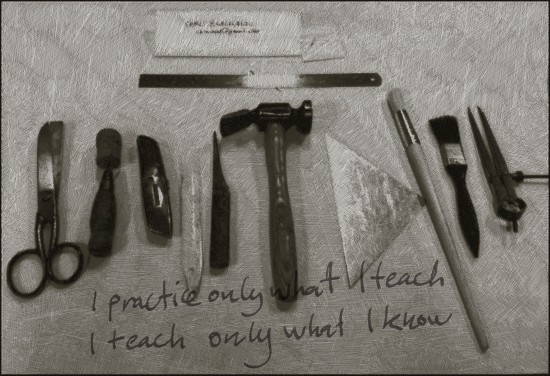The digital artwork (see below) appears with permission of the artist.
 “Tooltalking” Digital Art by Christopher William Blackall (Canberra, Australia. November 2013)
“Tooltalking” Digital Art by Christopher William Blackall (Canberra, Australia. November 2013)
Some projects are more complex to implement than others. A particularly innovative project can take many years to finally come to fruition. Distance, time, language, resources and especially allowing for the considerable time it takes to establish new and sustainable cross-cultural research-based relationships with others. Such matters all play an important role.
The Mongolia Project has been just such a project. This project and I have travelled along together for a number of years now. But unlike eating chocolate, it’s implementation has been far from a straightforward ‘got it down and dusted’ affair. This has been mainly due to my reluctance to adopt a snatch and grab ethnographic approach to collecting important data from people about their lives. Such reasoning seems to have been well-founded as the project is now coming to fruition in more satisfying community-based and sustainable ways. Whilst others have grown bored or impatient, or have simply lost interest, my friend and colleague Christopher Blackall from The Australian National University (ANU) in Canberra is one of a small handful of scholars who have been unfaltering in their support of my approach to this anthropological work.
Christopher has an extensive professional background as an educational designer and information technology communications (ICT) specialist at the ANU and before that at the University of Melbourne. Most recently, he has been responsible for the educational design aspects of the Australian National University (ANU) Online Portfolio in support of course design and development activities throughout the University.
Here notions of honour and humility and their integration into the ethos of good scholarship and one’s teaching and learning spring to mind. To my way of thinking, being a learn-ed person exists only in a social vacuum unless tempered in relation to others (Goffman, Erving. 1959. The Presentation of the Self in Everyday Life) by the other two.
I am not alone in my thinking. Here I draw from a more recent paper by David Hayward: Changing the Game: what voters can do to improve political discussion and debate that he presented at the Independent Scholars Association of Australia (ISAA) Language and Power Conference in Canberra, Australia in 2012. The topics of interest for David are Honour, Humility and the Dunning Kruger Effect. Honour is having a reputation for behaviour that is becoming or worthy … a fine sense of one’s obligations … Honour is associated with Trust (p21, cf to The Macquarie Dictionary Online). Humility is having a modest sense of one’s own significance. Humility is not thinking less of yourself but rather thinking of yourself less. It is the spirit of self-examination; a hermeneutic of suspicion toward yourself and charity toward people with whom you may disagree (p22, cf. Wikipedia/seven virtues). The Dunning Kruger Effect is the tendency of the lesser skilled to overestimate their competence relative to others, while the […] competent tend to underestimate their ability (p22).
Today I have to again work on my ignorance. It’s a full time job!
These words were uttered in recent friendly banter with Christopher Blackall. And so, my first post to the Artscapes category on CPinMongolia.com honours this approach to teaching and learning, a practice that some readers of my blog may share.
end of transcript.
Refer to the INDEX for other articles that may be of interest.
© 2013-2025. CP in Mongolia. This post is licensed under the Creative Commons Attribution 4.0 International License. Documents linked from this page may be subject to other restrictions. Posted: 1 February 2014. Last updated: 29 October 2017.